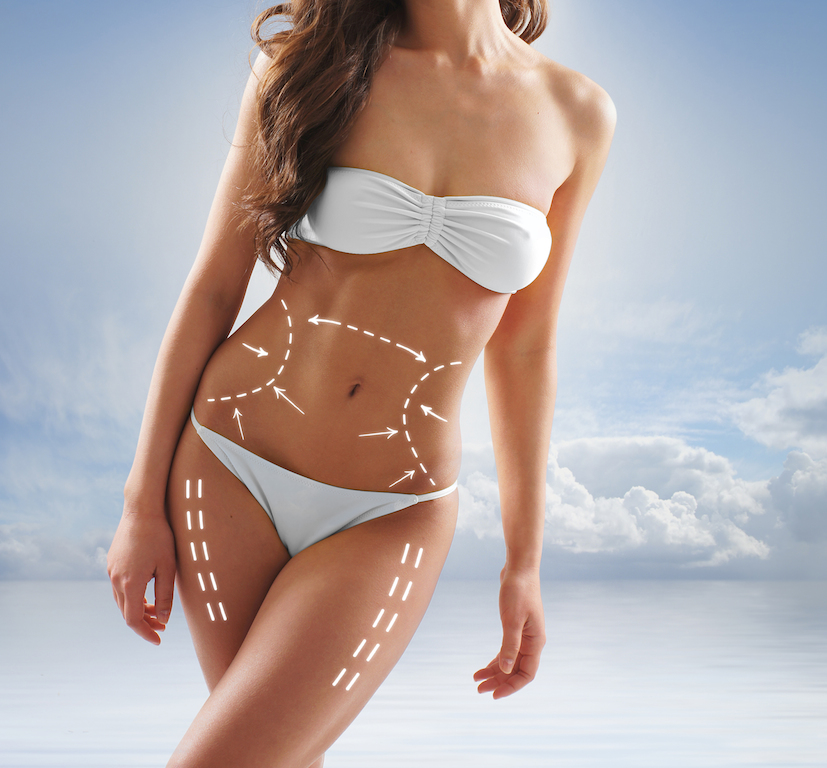Medical tourism refers to the process of patients from one country travelling to another country for surgical or medical procedures to pay out of pocket. For instance, there are patients who travel from the United States to the Dominican Republic for cosmetic surgery and other procedures at a cost lower than what they would pay in the United States. Dr. Samuel Lin with Hassan Alnaeem, MD spoke with Haute Beauty about medical tourism, the risks associated and why it isn't the best choice when it comes to your health.
 Photo Credit: Shutterstock
Photo Credit: Shutterstock
Haute Beauty: What is medical tourism for cosmetic/aesthetic surgery?
Dr. Samuel Lin: Increasing demands for affordable aesthetic surgery with reduced cost have lured patients abroad to countries, such as the Dominican Republic and Mexico1. Traveling abroad for surgery allows for potentially lower cost, more privacy, and vacation-based recuperation2.
HB: Are there any risks of having surgeries abroad?
SL: Risks of surgery are present with procedures performed anywhere. However, the major risks with medical tourism are lack of follow up with the surgeon who performed the procedure, travelling back home within days after surgery, lack of medicolegal recourse3, exposure and transport of foreign microbes and the burden of treating complications in the home country4. Indeed, colleagues in our hospital have routinely taken care of patients who have travelled abroad for cosmetic surgery.
HB: What kind of complications that might happen following aesthetic procedures?
SL: Complication profile following aesthetic surgeries is wide. However, the most common complication seen following aesthetic procedure performed abroad are infection with foreign bacteria like mycobacteria or less common organisms5, wound break down, blood clots in the legs and lungs with an average management cost of $18,000.1 A rare complication reported in the literature is gossybipoma, also known as RFO (retained foreign object), meaning a retained surgical sponge inside the patient's body6 though retained foreign materials can happen anywhere.
HB: What will happen if I travel back home and end up with complications?
SL: The cost of treating complications is significant not only for the patient but also for the plastic surgeon, the insurance company and the hospital. Most medical tourists will seek intervention at their local hospital rather than flying back to the surgeon who performed the procedure4. Given the difference in technique, medical care and microbial population, management of complications requires special treatment and significant expenses7.
HB: What is the future of medical tourism?
SL: Medical tourism undoubtedly will continue to grow with increasing interest in lowering the U.S. health care cost. However, it is still not as regulated, and lack legal recourses provided by the domestic U.S. market. This will deem the medical tourist fewer rights and should not expect any coverage by the U.S. legal jurisdiction. The medical tourist patient can expect ethical continuity of care and coverage on their return but there may be less to be found abroad8.
HB: What is the recommendation of the American Society of Plastic Surgery on medical tourism?
SL: The ASPS recommendations include checking the credentials of the practitioner and the institution before travel and require medical evaluation before surgery. It is essential the plastic surgeons educate the patient about the risks and benefits of performing surgeries outside the country. At times, travelling abroad for plastic surgery may be penny wise but pound foolish.9
References:
1. Adabi K, Stern CS, Weichman KE, et al. Population Health Implications of Medical Tourism. Plast Reconstr Surg. 2017;140(1):66-74.
2. Snyder J, Crooks V, Johnston R, Kingsbury P. Beyond sun, sand, and stitches: assigning responsibility for the harms of medical tourism. Bioethics. 2013;27(5):233-242.
3. Burkett L. Medical tourism. Concerns, benefits, and the American legal perspective. J Leg Med. 2007;28(2):223-245.
4. McKinnon BJ, Bhatt N. Cochlear implants and medical tourism. Cochlear Implants Int. 2010;11(3):125-132.
5. Ross KM, Moscoso AV, Bayer LR, Rosselli-Risal L, Orgill DP. Plastic Surgery Complications from Medical Tourism Treated in a U.S. Academic Medical Center. Plast Reconstr Surg. 2018;141(4):517e-523e.
6. Kantak NA, Reish RG, Slavin SA, Lin SJ. Gossypiboma: an approach to diagnosis in the era of medical tourism. Plast Reconstr Surg. 2014;133(3):443e-444e.
7. MacReady N. Developing countries court medical tourists. Lancet. 2007;369(9576):1849-1850.
8. Davison SP, Hayes KD, LaBove G, Shaffer P. The Price of Medical Tourism: The Legal Implications of Surgery Abroad. Plast Reconstr Surg. 2018;142(4):1075-1080.
9. Tran BA, Kludt N, Wong MS. The cost of medical tourism: penny-wise and pound-foolish? Plast Reconstr Surg. 2014;133(6):908e-909e.
For more information, visit Dr. Samuel Lin's social media:
























